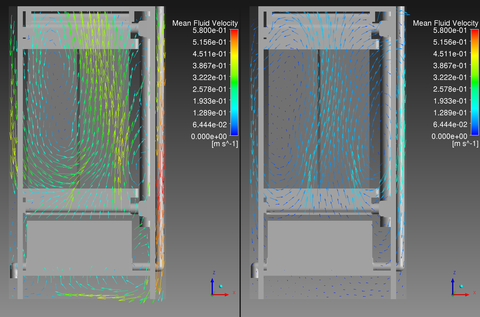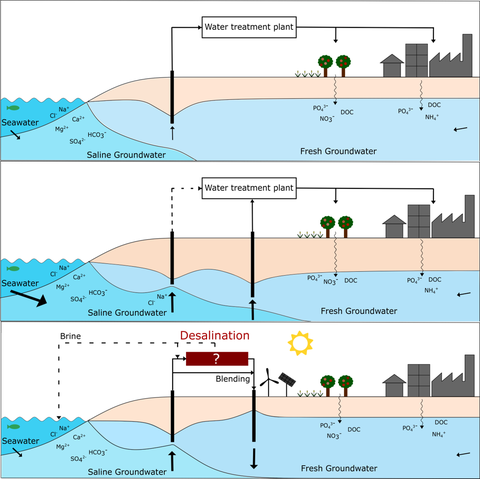Research fields
With the defined research profiles:
- Membrane processes in water and waste water treatment
- Simulation of treatment processes, especially by Computational Fluid Dynamics (CFD),
- (Industrial) water management in the context of Integrated Water and Resource Management (IWRM).
the Chair of Process Engineering Hydro Systems is facing the challenge of the development and optimisation of innovate processes to treat water and waste water in the context of an industrial and academic research.
Innovative processes, from our perspective, must target sustainable utilization of the used water resources, process integrated water recycling, retain reusable materials, recycle raw materials by the generally efficient use of water, resources and energy. The Chair of Process Engineering Hydro Systems takes this into account as stated by its research profile areas that ideally complement each other in context of IWRM.
Especially membrane technology has become a key technology. In many respects, membrane processes are already state-of-the-art technologies and implemented on an industrial scale in municipal and industrial water and waste water treatment. In knowledge of the latest national and international research topics it is apparent, however, that there is a need for further development to make technologies more efficient and selective. The research and development of innovative processes will thus continue to be dominated by membrane processes and their hybrid systems. In general, membrane processes are a core competence at the Chair of Process Engineering Hydro Systems. They will be processed nationally and internationally within the framework of research projects. The research fields in this area can be divided into the following three directions:
- Treatment of drinking and process water as well as (industrial) waste water for water reuse with focus on possible conventional membrane and membrane hybrid processes such as activated carbon/membrane filtration, oxidation/membrane filtration and membrane bioreactors (MBR), but also (modified) nanofiltration and reverse osmosis for the advanced treatment of raw waters containing anthropogenic pollutants;
- Treatment of specific raw and waste water with innovative process approaches such as (pressure assisted) forward osmosis, membrane destillation or capacitive membrane-deionisation;
- Treatment of membrane concentrates to increase the yield, to recover reusable materials, to minimise pollution and to recycle water.
Research always aims on a progress in process understanding, which can be demonstrated through numerical modelling in an outstanding way. In simulations, real systems can be analysed and experiments can be conducted by models, obtaining information of the system itself. Therefore, CFD is a particularly useful and complementary tool for conceptual studies of plant design, for detailed product development, for new designs and for the optimisation of existing processes as well as for the depiction of problem-solving solutions in the field of hydro process engineering. Beyond that, it can be used to describe and analyse microscopic processes at the phase boundaries too. Thus, fundamental as well as practical research and development projects can be optimally complemented in connection with membrane processes and in the context of IWRM to contribute to a better process understanding or to an optimised process technology. For that reason, the Chair of Process Engineering Hydro Systems is establishing its expertise in the area of flow simulation in its research profile and aligns it especially to the needs of industrial water and waste water treatment.


